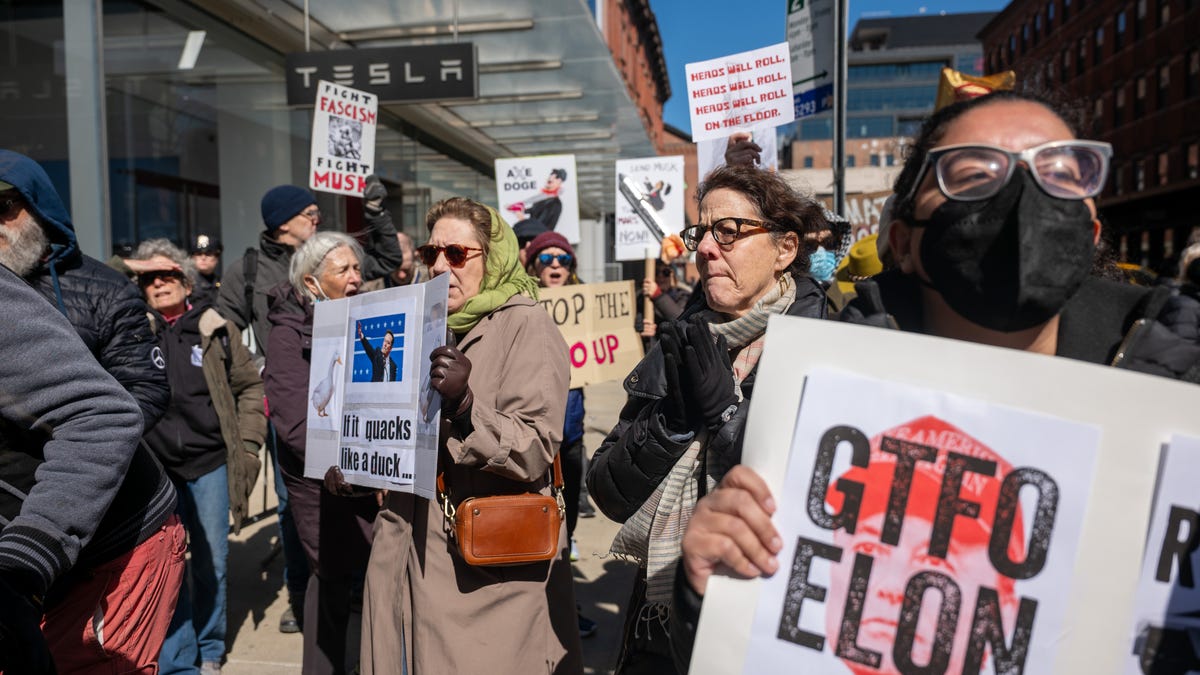
The Shifting Sands of Corporate Protectionism: Tesla, Elon Musk, and the Unexpected White House Intervention
The business world is rarely predictable, but the recent developments surrounding Tesla and its CEO, Elon Musk, have injected a particularly volatile cocktail into the mix. While Tesla continues its rapid ascent in the electric vehicle market, the company finds itself embroiled in a maelstrom of controversy, sparking protests ranging from peaceful demonstrations to more disruptive actions. These protests, fueled by a variety of concerns – from ethical labor practices to environmental impact and Musk’s controversial public persona – have the potential to significantly impact Tesla’s operations and its future trajectory.
This situation, however, has taken an unexpected turn with the involvement of the White House. While government intervention in corporate matters isn’t unprecedented, the current level of engagement appears to be motivated by a complex interplay of factors beyond typical regulatory oversight. The administration’s actions suggest a strategic decision to shield Tesla, and by extension, a key player in the burgeoning American electric vehicle industry, from the potential consequences of the escalating protests.
The justification for this intervention, if any is officially offered, likely revolves around safeguarding national economic interests. Tesla, a prominent symbol of American innovation and a significant employer, represents a substantial investment in the nation’s future. The potential for significant disruptions, job losses, and damage to the electric vehicle sector as a whole is arguably a compelling reason for intervention, regardless of the validity of the underlying protests. This argument falls under the broader umbrella of corporate protectionism, where the government steps in to shield domestic companies from perceived threats, even if those threats are domestically generated.
However, this approach raises considerable concerns. By intervening on behalf of Tesla, the administration risks setting a dangerous precedent. It could be interpreted as a tacit endorsement of the company’s practices, regardless of their merits or demerits. This could stifle legitimate criticism and hinder the necessary accountability that any large corporation, particularly one with such a wide-ranging impact, should face. The line between protecting national interests and shielding corporate entities from accountability becomes incredibly blurry in such situations.
Furthermore, the administration’s actions could be seen as an infringement on the right to protest, a cornerstone of a functioning democracy. While the government has a legitimate interest in maintaining order and preventing violence, interfering to protect a corporation from the consequences of its actions, regardless of how justified those actions are perceived to be, raises concerns about free speech and the ability of citizens to hold powerful entities accountable. This is especially critical when the protests touch upon matters of significant social and environmental concern.
Ultimately, the situation highlights a complex and challenging dilemma. Balancing the needs of national economic interests, the right to protest, and the accountability of large corporations is a tightrope walk, and the administration’s intervention in the Tesla situation is a stark reminder of the delicate balance that must be maintained. The long-term consequences of this approach remain to be seen, but it undoubtedly sets a precedent with implications far beyond the electric vehicle sector. The debate about corporate protectionism, free speech, and the responsibility of government in a rapidly evolving economic landscape has only just begun.



Leave a Reply